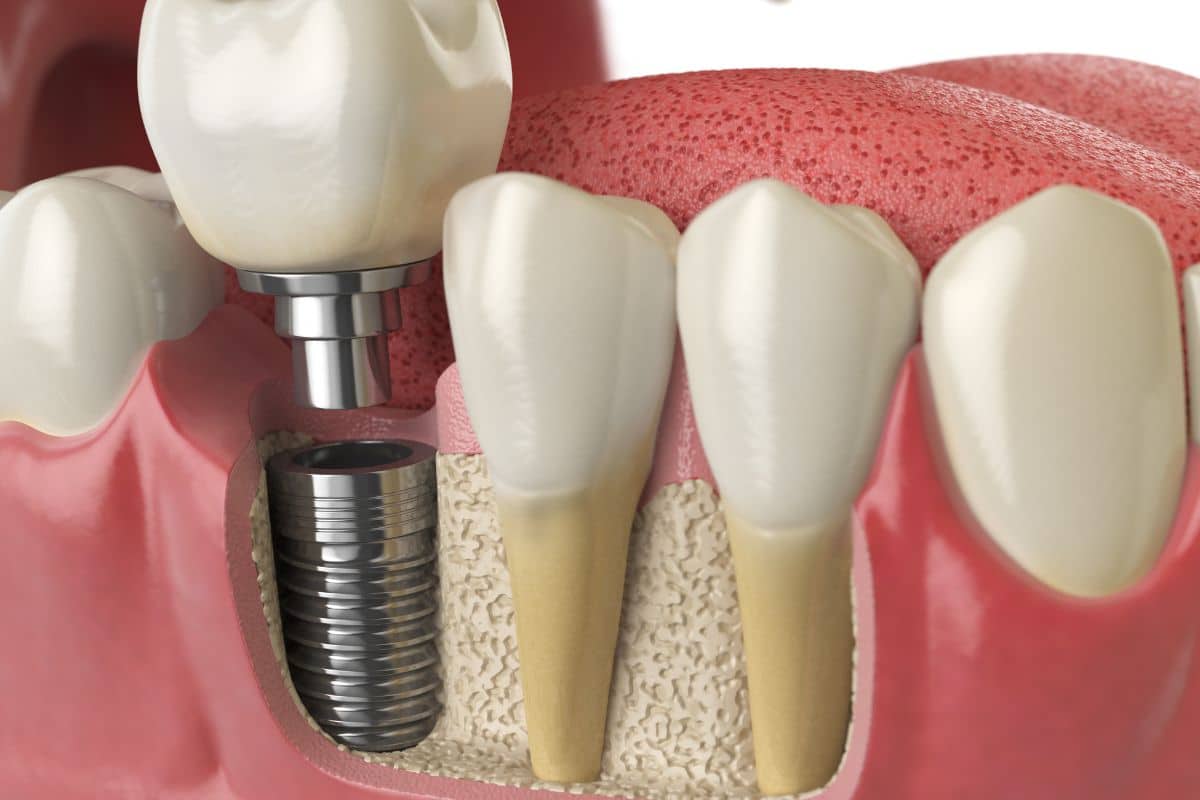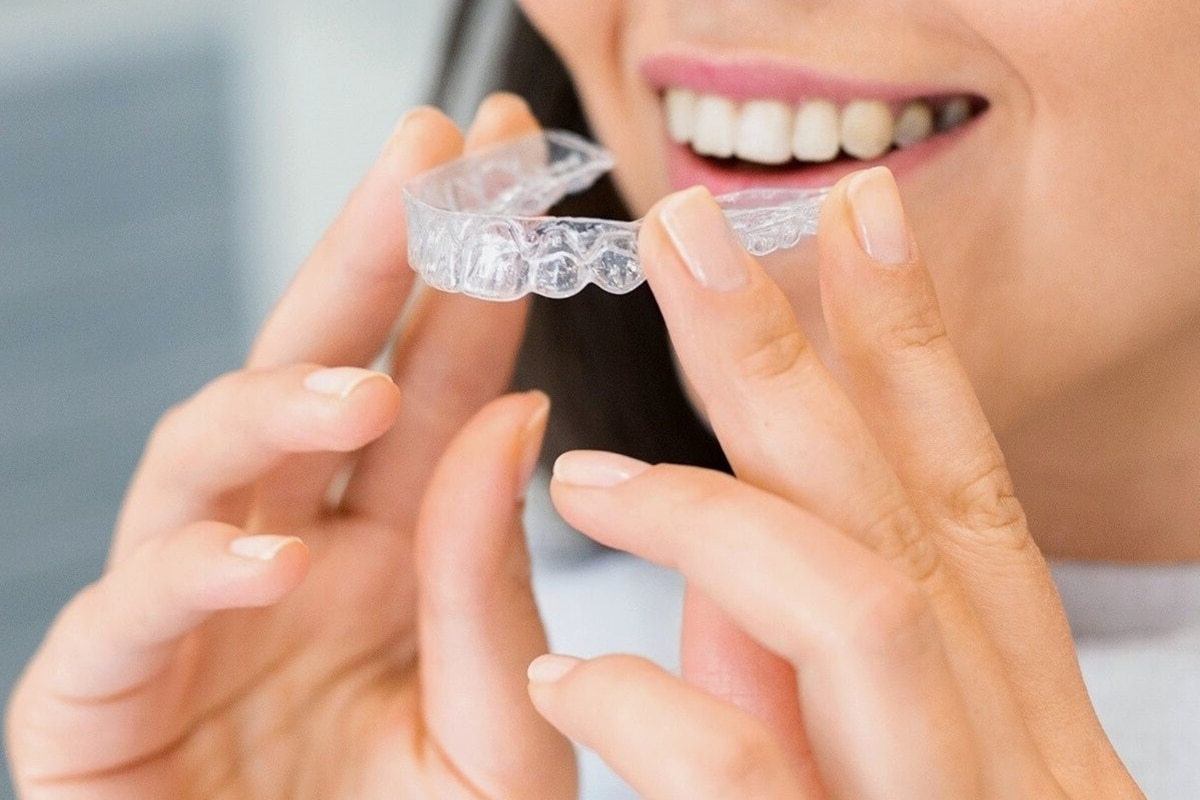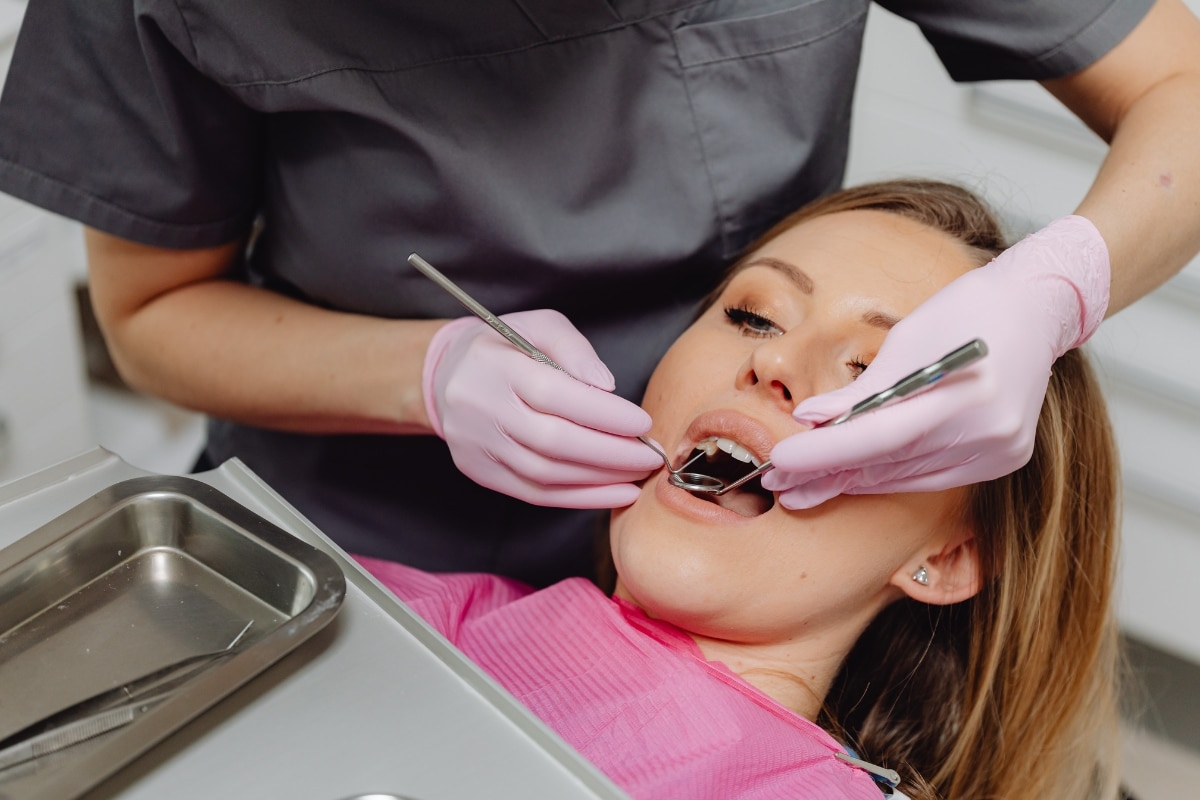Pay Online
The Surprising Connection Between Diet And Dental Health

In our fast-paced lives, where we’re constantly bombarded with new fad diets and trendy eating habits, it’s easy to overlook the profound impact our dietary choices have on our dental health.
Your diet is not only crucial for your overall well-being but also plays a significant role in the health of your teeth and gums. Let’s delve into the intricate relationship between what you eat and the state of your oral hygiene and uncover some practical tips for maintaining a radiant smile.
The Foundation of Dental Health: Nutrition

A balanced diet forms the cornerstone of optimal dental health. It provides the essential nutrients that promote strong teeth and gums, helping to ward off dental problems such as cavities and gum disease. Incorporating a variety of nutrient-rich foods ensures that your body receives all the building blocks it needs for maintaining oral health.
Calcium and Vitamin D for Strong Teeth
Calcium and vitamin D are vital nutrients for maintaining strong teeth and bones. Calcium helps to strengthen tooth enamel, while vitamin D aids in calcium absorption, ensuring that your teeth remain resilient against decay and erosion.
Incorporate dairy products, leafy greens, and fortified foods into your diet to ensure an adequate intake of these essential nutrients.
Phosphorus for Tooth Structure
Phosphorus plays a crucial role in the formation and maintenance of tooth structure. It works synergistically with calcium to strengthen tooth enamel and prevent demineralization.
Foods rich in phosphorus include lean meats, poultry, fish, nuts, and seeds. Including these foods in your diet can help fortify your teeth and protect against decay.
Vitamin C for Gum Health
Vitamin C is essential for gum health as it promotes collagen production, which helps to maintain the integrity of gum tissue. Incorporate plenty of fruits and vegetables such as oranges, strawberries, bell peppers, and broccoli into your diet to ensure an adequate intake of vitamin C and support healthy gums.
Water for Hydration and Oral Health
Staying hydrated is essential for overall health and plays a vital role in maintaining oral hygiene. Water helps to wash away food particles, bacteria, and acids that can accumulate in the mouth, reducing the risk of cavities and gum disease. Make sure to drink plenty of water throughout the day to keep your mouth hydrated and your teeth and gums healthy.
Limiting Sugar and Acidic Foods for Dental Protection
While certain foods can promote dental health, others can have detrimental effects on your teeth and gums. Sugary and acidic foods and beverages can contribute to tooth decay, erosion of enamel, and gum irritation. Limiting your intake of these foods and practicing moderation is key to protecting your dental health.
Foods That Harm Dental Health
Understanding which foods threaten dental health is essential for making informed dietary choices. Sugary delights, acidic foods, sticky snacks, starchy foods, and carbonated beverages are among the culprits that can wreak havoc on teeth and gums if consumed in excess.
Sugary Delights and Tooth Decay
Frequent consumption of sugary treats such as candies, cakes, and sodas can fuel the growth of harmful bacteria in the mouth, leading to the formation of plaque and eventual tooth decay. Opt for healthier alternatives like fresh fruits or sugar-free snacks to satisfy your sweet cravings without compromising your dental health.
Acidic Foods and Enamel Erosion
Acidic foods and beverages, including citrus fruits, tomatoes, vinegar, and carbonated drinks, can weaken tooth enamel over time, making your teeth more susceptible to decay and sensitivity. Minimize your intake of these acidic foods and pair them with neutralizing options like dairy products to mitigate their erosive effects.
Sticky Snacks and Dental Dilemmas
Sticky snacks like caramels, dried fruits, and chewy candies can cling to the surfaces of your teeth, breeding ground bacteria and increasing the risk of cavities. Opt for less adhesive snacks, or make sure to brush and floss thoroughly after indulging in sticky treats to remove any lingering residue.
Starchy Foods and the Sugar Conversion
Starchy foods like chips, crackers, and bread can break down into sugars in the mouth, feeding the bacteria that cause plaque and leading to tooth decay. To minimize the risk of dental problems, choose whole grain options whenever possible and be mindful of your overall carbohydrate intake.
Carbonated Beverages and Tooth Wear
Carbonated beverages contain high levels of acids that can erode tooth enamel and contribute to tooth wear and sensitivity. To protect your dental health, limit your consumption of soda, sports drinks, and sparkling water, and opt for water or milk as healthier alternatives.
Nurturing Your Dental Health Through Eating Habits
In addition to making nutritious food choices, adopting mindful eating habits can further support your dental health and overall well-being. Mindful chewing, regular meal schedules, proper hydration, and implementing a post-meal oral care routine are all simple yet effective strategies for maintaining a healthy smile.
Mindful Chewing and Savoring
Take the time to chew your food thoroughly and savor the flavors. This will allow saliva to mix with your food and initiate the digestion process. This not only aids in nutrient absorption but also helps to cleanse the mouth and promote saliva production, which is essential for neutralizing acids and protecting against cavities.
Timing Matters: Regular Meal Schedules
Establishing regular meal schedules can help minimize the frequency of snacking and reduce the exposure of your teeth to harmful acids and sugars. Aim to eat balanced meals at consistent times throughout the day to maintain optimal oral health and prevent unnecessary dental issues.
Hydration and Rinse Routine
Drinking water throughout the day helps to keep your mouth hydrated and rinse away food particles and bacteria that can lead to plaque buildup and bad breath. Make it a habit to swish water around your mouth after meals to help cleanse your teeth and gums and maintain a fresh, healthy smile.
Avoid Grazing and Snacking All Day
Constant snacking and grazing can prolong the exposure of your teeth to sugars and acids, increasing the risk of tooth decay and erosion. To protect your dental health, try to limit snacking between meals and opt for nutritious snacks that are low in sugar and acidity.
Implementing a Post-Meal Oral Care Routine
After indulging in a meal or snack, it’s important to practice good oral hygiene habits to remove food debris and plaque from your teeth and gums. Brushing with fluoride toothpaste, flossing, and using mouthwash can help to maintain a clean and healthy mouth between dental visits.
In conclusion, your diet plays a significant role in determining the health of your teeth and gums. By making mindful food choices, limiting sugary and acidic foods, and adopting healthy eating habits, you can safeguard your dental health and enjoy a radiant smile for years to come. Remember to schedule regular check-ups with your dentist Elgin to ensure that your oral health remains in top condition.
Recent Posts

Why Is It Critical to Replace a Missing Molar Even If It’s Not Visible When I Smile?

What Should I Do If My Child Knocks Out a Permanent Tooth in Elgin?

Can Invisalign Fix Overbite? How It Solves Complex Dental Issues in Elgin, IL

How Does Thumb-Sucking or Pacifier Use Affect Teeth?


